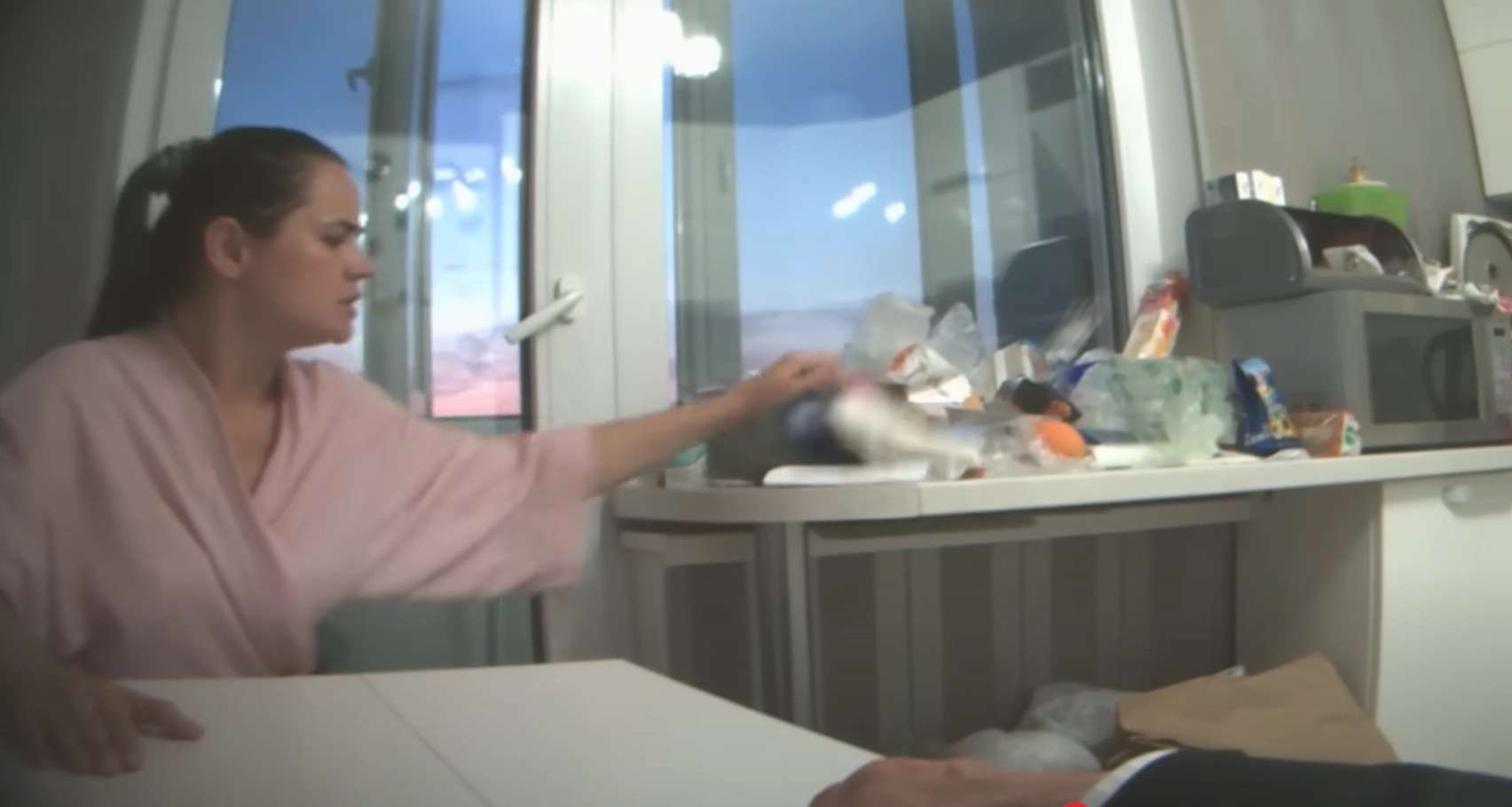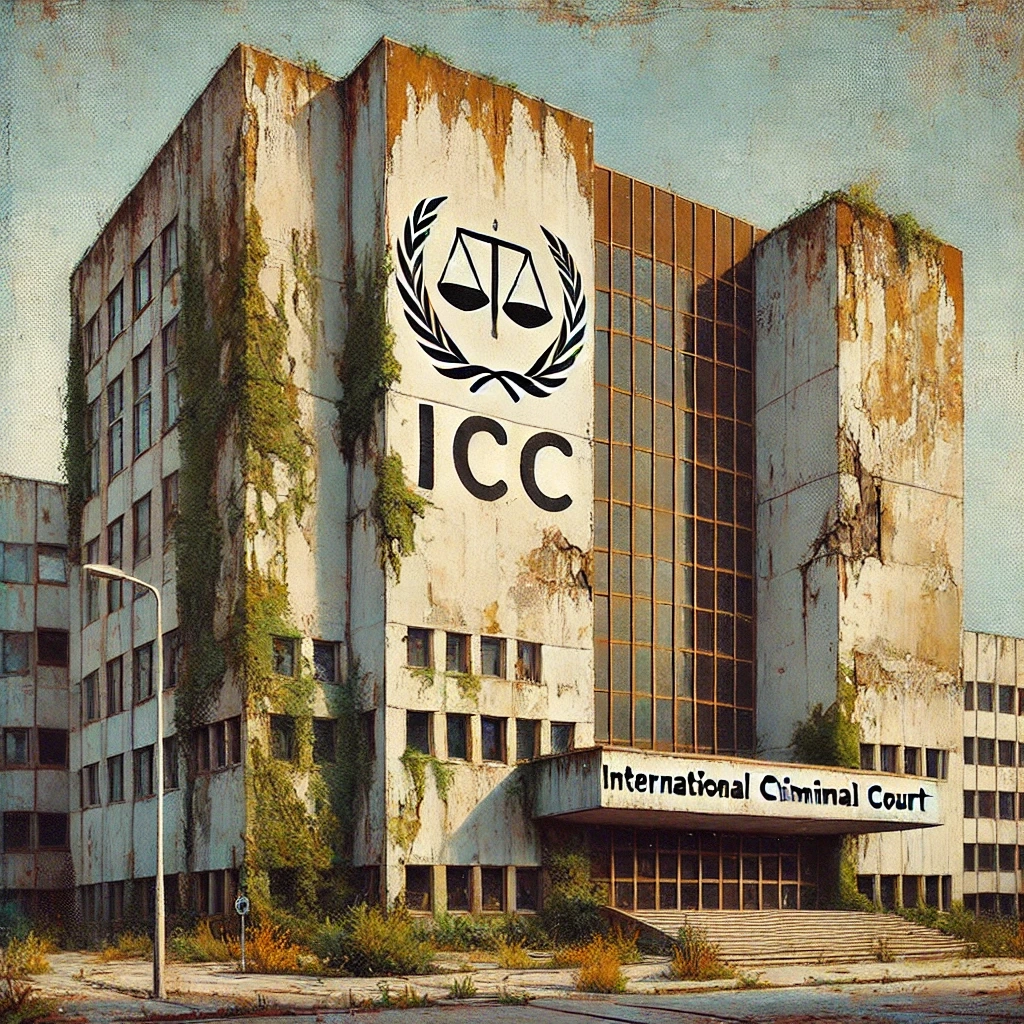Within the history of the 2020 Belarusian presidential campaign, one episode remains surrounded by uncertainty — the registration of Sviatlana Tikhanovskaya as a candidate. At a time marked by repression, arrests, and the refusal to register two main contenders — Viktar Babaryka and myself — her admission appeared as a carefully considered step by the authorities.
Recently, new details have emerged that provide a fuller picture of this decision. A video published online shows Tikhanovskaya receiving an envelope from a representative of the Belarusian security services. In the recording, she places the envelope on a nightstand and covers it with a towel, apparently to keep it out of sight of Maria Moroz, her friend and assistant at the time.

The video (starting from min.13.40) records an episode in which money is handed over by a security service officer and the package with cash is then concealed under a towel. The KGB does not distribute cash “for nothing.”
The officer suggests that she remain in Belarus and guarantees her safety — which means that this option, alongside departure to Lithuania, was indeed under consideration.
Tikhanovskaya refuses to stay, which raises the thought that abroad she was offered more favorable conditions. What those conditions were, as well as what took place in the Central Election Commission, what arrangements were made with the regime, who was expected to take her “under care” in the new country, and how some Lithuanian politicians saw in this an opportunity to “profit,” will be discussed in detail later — when the narrative reaches that stage, which will also be accompanied by legal actions.
The Bribe as a Moral and Legal Question
If a person accepts a bribe, it is already a crime and a disgrace. But when that person declares readiness to return it only five years later, and only after the very moment of receiving it was shown on television, doing so merely because a new “buyer” has appeared with a higher offer — this is not repentance, but bargaining over the price of betrayal. Such a “return” is not an act of conscience, but a cold calculation: to cover one bribe with another, received through new arrangements with other parties.
From the standpoint of law, receiving money in exchange for carrying out or refraining from political actions falls under provisions on corruption and the bribery of candidates. According to the UN Convention against Corruption, the EU Council Framework Decision 2003/568/JHA, and the national codes of most EU member states (including Lithuania, Poland, and Germany), candidates for elective office are treated as “public officials” and bear criminal liability for any unlawful benefits.
The return of a bribe years later, and only after its public exposure, is regarded in EU legal practice as “restitution under pressure” and does not remove liability. Moreover, if such restitution is financed by another, new payment likewise obtained through political arrangements, it is classified as a separate act of corruption and, in some jurisdictions, as an aggravating circumstance.
The Arithmetic of Absurdity
Sometimes statistics themselves become evidence. Numbers, dry and impartial, reveal too many mathematical miracles in the story of Tikhanovskaya’s registration to believe in their spontaneity. Viktar Babaryka’s initiative group included 3,200 activists who had received official accreditation. My own group numbered 850 accredited members. Sviatlana Tikhanovskaya’s initiative group, by contrast, had 256 members.
Our headquarters — Babaryka’s and mine — launched large-scale campaigns: traveling to towns and villages, coordinating volunteers, automating processes, checking the quality of signature sheets. We collected hundreds of thousands of signatures: Babaryka — 430,000, I — 212,000. Yet in both cases the Central Election Commission (CEC) invalidated about half of the submitted signatures.
Tikhanovskaya’s group, with just 256 members, produced over 120,000 signatures. And not just “120,000” — but with a zero percent rejection rate. Not a single “error”! A statistical miracle comparable to someone who has never held a deck of cards winning ten poker games in a row against world champions.
And this despite the fact that her headquarters had been decapitated and the team demoralized:
The head of her headquarters, Siarhei Tikhanovsky, the coordinator of the initiative group, Dzmitry Furmanau, and another 7–9 key activists had been arrested long before the signature collection ended;
Only two mass pickets, where signature collection was usually most active, were held during her campaign: one in Minsk and one in Hrodna. The latter ended with Tikhanovsky’s arrest;
Tikhanovskaya herself did not take part in any public events.
A simple calculation: to collect 120,000 signatures, each member of the initiative group would have had to gather around 500 signatures on average — in practice even more, since many dropped out after the arrest of Tikhanovsky and his team. Given the neutralization of leadership and the demoralization of activists, this seems nearly impossible.
As is known, Belarusian law allows submission of signature sheets to election commissions only by the candidate, the official head of the initiative group, or a specially designated coordinator.
In Tikhanovskaya’s case:
Siarhei Tikhanovsky, the head of her headquarters, was already in prison by the time the submission of signatures began;
Tikhanovskaya herself did not submit the signatures — there is no photo, video, or documentary evidence of her presence in district election commissions. Moreover, she publicly admitted that she did not do this;
The names of other authorized individuals who might have been entitled to submit the signatures were never disclosed.
But the most striking point lies elsewhere: it was Tikhanovskaya’s team that turned out to be impeccably professional bureaucrats. Unlike my team, where thorough programmers checked the sheets at my request, or Babaryka’s team, where experienced bankers were involved — and in both cases the CEC “found” half the signatures invalid — Tikhanovskaya’s team somehow managed to avoid a single error. Neither in the collection process nor in the documentation of the sheets did the Central Election Commission find the slightest flaw to question.
The story of Tikhanovskaya’s registration is only a particular case of a broader technique used by authoritarian regimes. The logic is simple: the ballot must contain a “living” candidate, but not a real competitor. For this purpose, a figure is found or created whose presence does not threaten the authorities, yet formally preserves the appearance of democracy.
Across many countries — from Africa to Latin America — the same “miracle” is repeated with striking precision: small campaign teams without resources, infrastructure, or organized activity suddenly produce results comparable to or even exceeding those of large, established campaigns.
Three recurring features are typically present:
Statistical anomaly — unrealistically high results without organizational preconditions.
Immunity from scrutiny — signatures, documents, or votes pass as “clean,” while mass “violations” are found among other candidates.
Opaque logistics — the absence of information about who submitted documents, who coordinated the process, and why this was never recorded in official reports.
Why Her?
For Lukashenko, Tikhanovskaya was a maximally convenient figure. An unemployed housewife, never previously interested in public life, whose only achievement, by her own admission, was the ability to fry cutlets — the ideal candidate for simulating a democratic process. A similar technique had already been used: in 2015 the authorities allowed Tatsiana Karatkevich onto the ballot, whose participation posed no threat to the regime and whose result was predictably insignificant.
Another reason for her registration was her own admission: “If I had money, I would never fight for the rights of ordinary Belarusians.” As Franklin said, “an empty bag cannot stand upright.” Lukashenko perceived this as a signal: it was enough to “fill the bag” slightly — and it would stand wherever the dictator required.
Double Standards of the CEC
When Lidia Yermoshina, the long-serving chair of the Central Election Commission and Lukashenko’s permanent ally in electoral manipulation, explained the refusal to register me as a candidate, one of the publicly stated arguments concerned my wife. Veronica was allegedly guilty of not declaring shares in Priorbank, which she had inherited from her mother shortly before her death.
What Yermoshina failed to mention was that the annual income from those shares amounted to between 8 and 12 euros. For a highly paid manager at one of the world’s largest IT companies, this was an amount she might have spent only on a few cups of coffee. Moreover, she had not purchased the shares — they had been bequeathed to her by her mother, who was dying practically in her arms. At that moment, a twenty-year-old girl was hardly concerned with financial details.
According to Belarusian law, undeclared income amounting to less than 10% of total annual income cannot serve as grounds for refusing candidate registration. All the more so since Veronica was not even a candidate herself. Sviatlana Tikhanovskaya was — and as a candidate she should have been held to much stricter standards than a candidate’s spouse.
In reality, the opposite occurred. When speaking of Veronica Tsepkalo, Yermoshina, in a prosecutor’s tone, accused her of “concealing shares.” Yet when Tikhanovskaya was mentioned, the CEC chair’s voice noticeably softened. She noted that Tikhanovskaya had failed to declare a house in the Gomel region — a serious violation of electoral law in any country, since real estate must be declared. But instead of reacting firmly, Yermoshina indulgently remarked: “Well, we are all human. She forgot to declare it — it happens, we are all women…”
This was despite the fact that in Siarhei Tikhanovsky’s house the authorities had allegedly “found” $900,000 in undeclared income — a sum that could easily have served as a formal reason to deny registration. Yet this was not done.
The story of Tikhanovskaya’s registration reflects the essence of Belarus’s electoral system. Here it is not the law that determines who becomes a candidate, but the regime’s fear of genuine alternatives. It is a sieve through which only those who pose no threat to power are allowed to pass — or, as has now become evident, those with whom arrangements can be made.
When the opposition is appointed by the authorities themselves, it is no longer an election. It is a theatrical performance, one in which in 2020 the regime attempted to force the entire Belarusian people to participate.
To be continued









